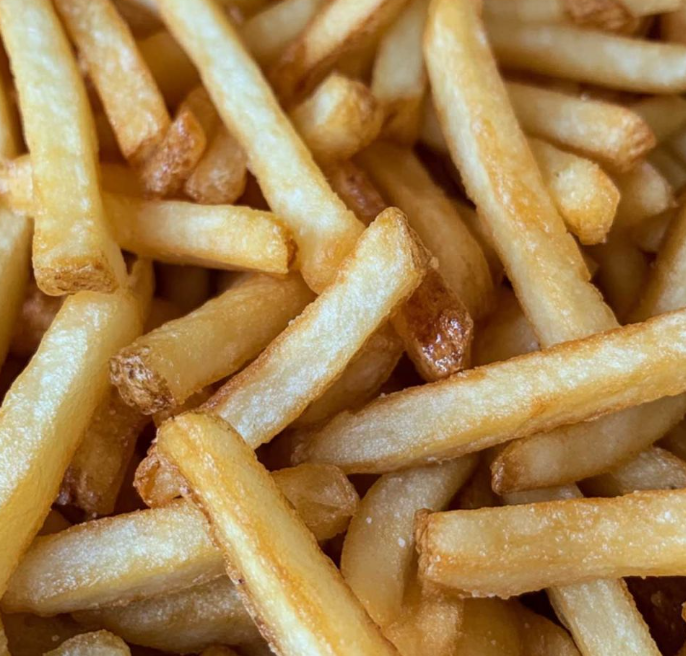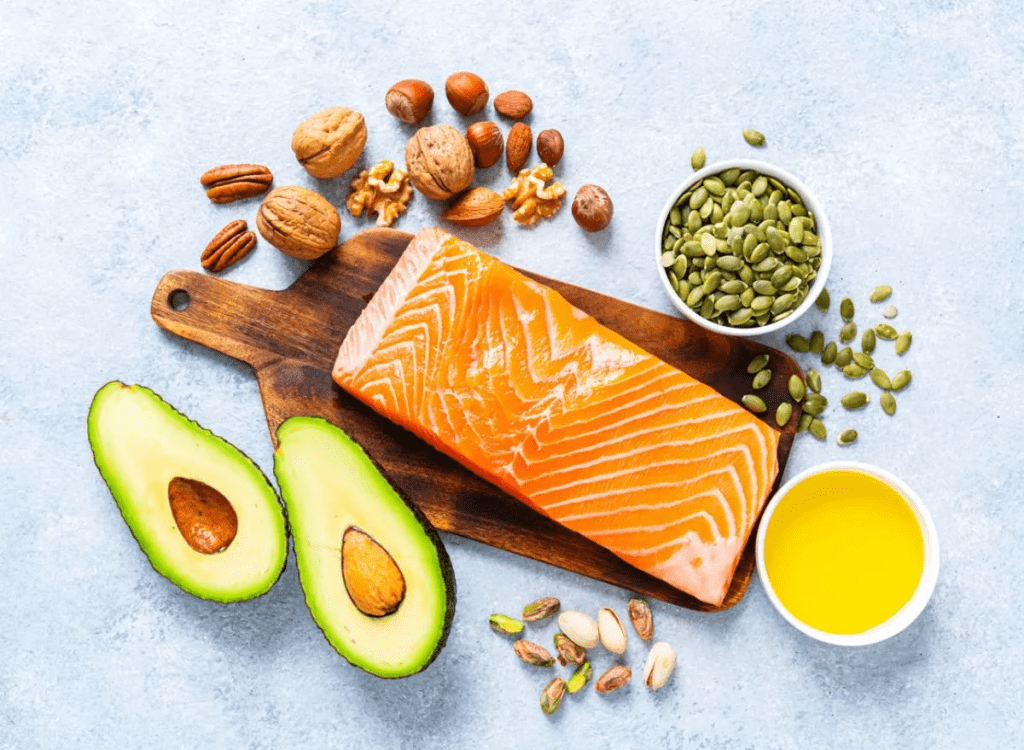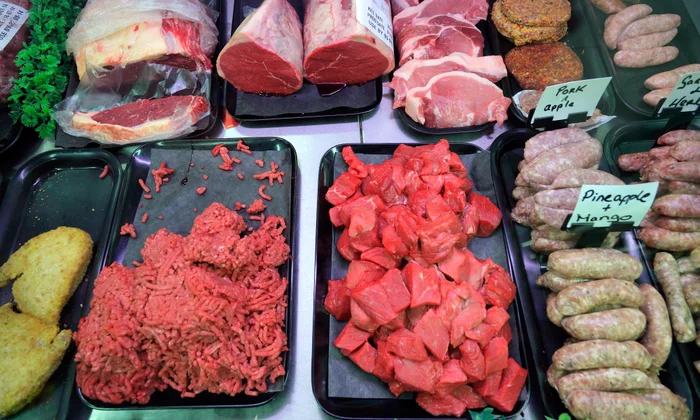Aging is inevitable, but the speed at which our skin and body show signs of aging can be influenced by various lifestyle factors—particularly, the foods we eat. While some foods nourish our bodies and help maintain a youthful appearance, others can accelerate the aging process, causing premature wrinkles, dull skin, and increased inflammation. Many of these foods are surprisingly common in our daily diets.
In this article, we explore ten foods that may be causing you to age faster and why eliminating or reducing them from your diet can promote healthier, more youthful aging.
1. The Hidden Dangers of Processed Foods

Processed foods may be convenient, but they often come with a cost to your health. Packed with preservatives, unhealthy fats, excess sugar, and salt, processed foods contribute to inflammation—a key driver of aging. Chronic inflammation can lead to wrinkles, weakened skin elasticity, and even age-related diseases.
Moreover, many processed foods are calorie-dense and nutritionally poor, making it easier to gain weight, which can exacerbate the signs of aging. Swapping out processed snacks for whole foods rich in vitamins and minerals can slow down aging and improve overall health.
2. Sugary Snacks and Premature Aging
Excessive sugar consumption is one of the worst offenders when it comes to aging. Sugary snacks like candies, pastries, and sodas promote the formation of advanced glycation end products (AGEs). AGEs damage collagen and elastin, which are essential for keeping your skin firm and youthful. The breakdown of these proteins leads to wrinkles, sagging, and a loss of skin elasticity.
By cutting back on sugary treats, you can reduce the formation of AGEs and help maintain your skin’s smooth, youthful appearance for longer.
3. Trans Fats: The Unseen Culprits
Trans fats, often found in fried foods, baked goods, and processed snacks, not only harm your heart health but also wreak havoc on your skin. These artificial fats contribute to inflammation and disrupt the skin’s cellular structure, which reduces its ability to repair itself. The result? Premature wrinkles, a dull complexion, and sagging skin.
Avoiding foods that contain trans fats is crucial for both your skin and overall well-being. Look for labels that say “zero trans fats,” or better yet, opt for fresh, unprocessed foods.
4. Refined Carbohydrates and Skin Health
Refined carbs such as white bread, pasta, and rice may be comforting, but they come with hidden risks for your skin. These foods have a high glycemic index, meaning they cause blood sugar levels to spike quickly. High blood sugar levels can weaken collagen and elastin, leading to sagging skin and wrinkles.
Choosing whole grains instead of refined carbohydrates can slow down the aging process. Whole grains are rich in fiber and nutrients that support healthy skin and keep your blood sugar levels stable.
5. High-Sodium Foods and Aging Skin

Salt is another hidden danger in many processed and fast foods. A diet high in sodium can lead to water retention and puffiness, particularly around the eyes. Over time, too much salt can dehydrate your skin, making it look tired, dry, and aged.
Foods like canned soups, processed meats, and fast food are typically high in sodium. Reducing your intake of these foods and staying hydrated can help your skin retain its youthful glow.
6. Artificial Sweeteners: Friend or Foe?
Artificial sweeteners may seem like a healthier alternative to sugar, but their effects on aging are still unclear. Some studies suggest that these sweeteners can disrupt your gut bacteria, leading to increased inflammation and oxidative stress, both of which can accelerate aging.
Additionally, artificial sweeteners may trigger cravings for sweet, unhealthy foods, indirectly contributing to the aging process. Moderation is key—try to limit your intake of artificial sweeteners and choose natural alternatives like honey or stevia when possible.
7. Red and Processed Meats: Aging from Within

Consuming large amounts of red and processed meats like bacon, sausages, and beef can increase the production of harmful AGEs. These meats are often high in unhealthy fats and preservatives, which promote inflammation and oxidative stress—two key factors that speed up the aging process.
Opting for lean proteins like chicken, fish, or plant-based alternatives can help reduce inflammation and keep your body and skin looking and feeling younger.
8. Alcohol and Accelerated Aging
Alcohol may be a social staple, but it can take a toll on your skin and overall health. Drinking alcohol dehydrates the skin, making it more prone to wrinkles and fine lines. Over time, alcohol can also deplete essential nutrients, damage the liver, and increase inflammation throughout the body—all of which contribute to premature aging.
Limiting alcohol intake and drinking plenty of water to stay hydrated can help minimize the aging effects of alcohol and keep your skin looking vibrant.
9. Fried Foods and Oxidative Stress

Fried foods, particularly those cooked in unhealthy oils, produce free radicals—unstable molecules that cause oxidative stress. This stress damages skin cells and speeds up the aging process, leading to wrinkles, sagging skin, and a dull complexion.
Choosing healthier cooking methods like grilling, steaming, or baking can help preserve your skin’s youthful appearance and protect your cells from oxidative damage.
10. Caffeinated Beverages and Dehydration Effects
Caffeine, found in coffee, tea, and energy drinks, acts as a diuretic, increasing urination and leading to dehydration. When your skin is dehydrated, it can appear dry, dull, and more prone to wrinkles. While caffeine has its benefits, overconsumption can worsen these dehydration effects.
To maintain a youthful, radiant complexion, balance your caffeine intake with plenty of water and consider cutting back on heavily caffeinated beverages.
Conclusion: Choosing Foods for Youthful Aging
While aging is a natural process, the foods you eat can either speed it up or slow it down. By being mindful of your diet and reducing your intake of harmful foods like processed snacks, sugary treats, trans fats, and refined carbohydrates, you can promote healthier, more youthful aging. Instead, focus on a diet rich in whole, unprocessed foods, antioxidants, and healthy fats to nourish your body from the inside out.
Remember, a youthful appearance isn’t just about what’s on the outside—it’s about caring for your body as a whole. By making better food choices, staying hydrated, exercising regularly, and getting enough sleep, you can enjoy a more vibrant and youthful life for years to come.


